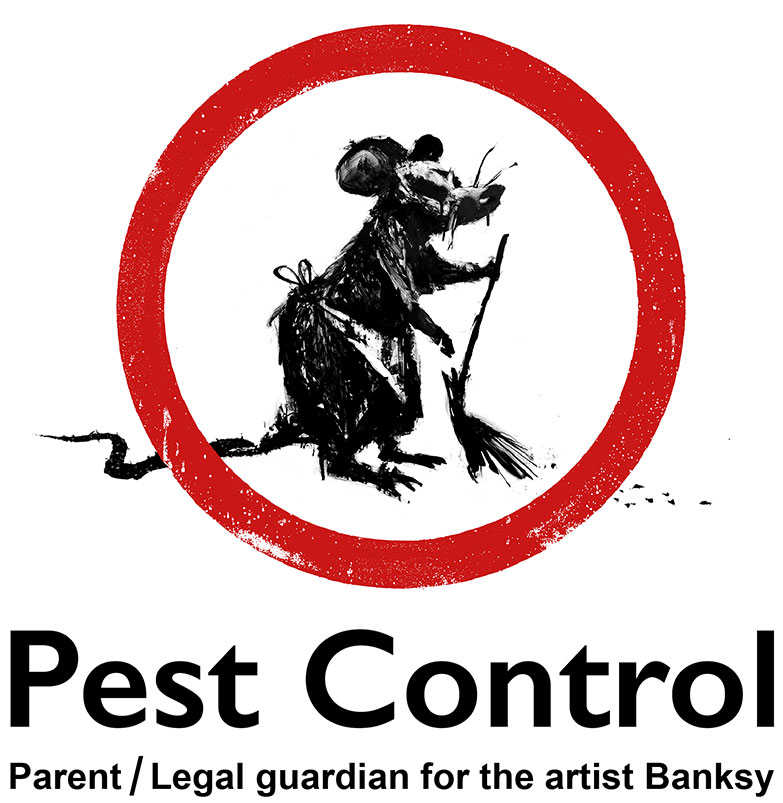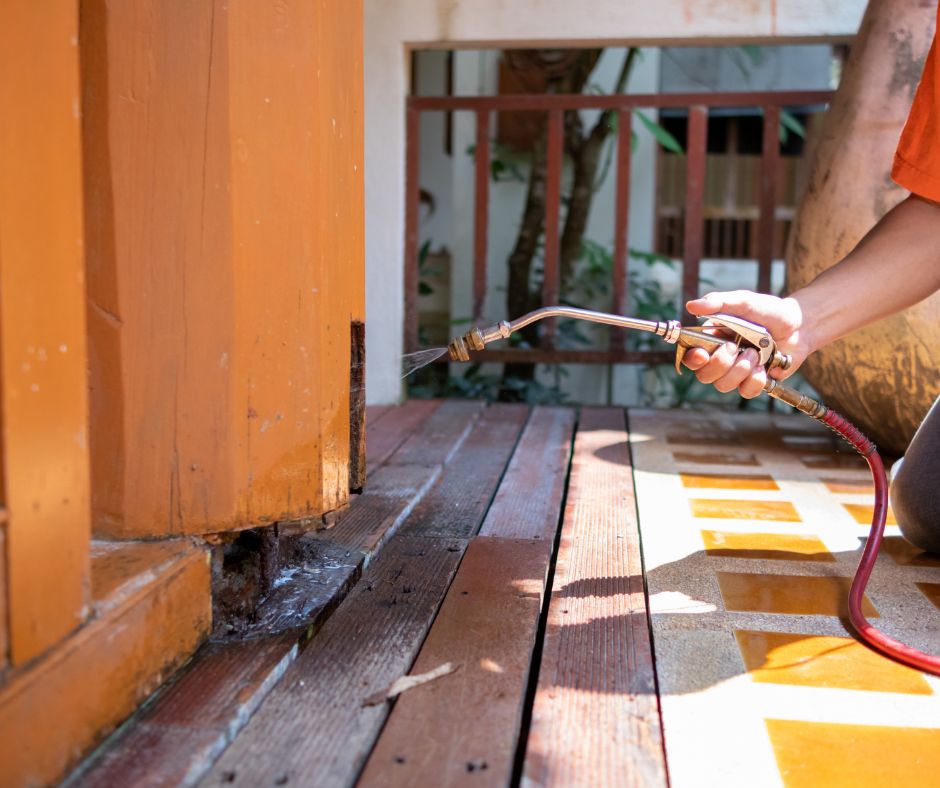Best Pest Control in Charlotte County for Your Property and Company
Reveal the Value of Pest Control in Preserving a Healthy Setting and Treatment Techniques

The Function of Parasites in Communities
Parasites, commonly seen only as problems, play a complex role in environments that is vital for preserving eco-friendly balance. They add substantially to numerous ecological processes, consisting of pollination, nutrient cycling, and bug control. Many insect species, such as bees and butterflies, are necessary pollinators for a wide variety of plants, which in turn sustains biodiversity and food manufacturing.
Additionally, bugs work as target for countless predators, creating a vital link in food webs. This connection ensures the survival of various species and helps regulate populations within environments (Termite treatment Port Charlotte). Decomposer pests, such as particular beetles and fungis, are important in breaking down natural matter, thus enriching soil and facilitating nutrient recycling.
Conversely, while parasites can be valuable, their overpopulation or intrusion right into non-native settings might interrupt these ecological functions. This intricacy highlights the significance of understanding pest characteristics, as efficient bug monitoring techniques should think about both their environmental functions and possible influence on human tasks. Balancing pest visibility while lessening damage is necessary for preserving the honesty of ecological communities and making sure agricultural performance.
Health And Wellness Threats Related To Pests
The visibility of insects in numerous atmospheres expands beyond their eco-friendly functions, as they additionally position substantial health and wellness threats to animals and people. Many pests, consisting of parasites, rats, and insects, are providers of illness that can have serious health and wellness effects. Rats are recognized to transmit hantavirus and leptospirosis, both of which can lead to serious respiratory system and renal problems, specifically.
Insects such as ticks and mosquitoes are well known for spreading vector-borne illness like jungle fever, dengue high temperature, and Lyme disease. These health problems can cause high morbidity and mortality rates, especially in at risk populaces. Additionally, insects like roaches and bedbugs can aggravate allergies and asthma, contributing to breathing troubles in people, specifically those with pre-existing problems.
Furthermore, the existence of bugs can bring about psychological stress and discomfort, affecting overall wellness. Contamination of food and surface areas by pest droppings and remains can result in foodborne diseases, highlighting the significance of preserving sanitary conditions. Understanding the wellness dangers associated with insects is important in acknowledging the necessity of reliable bug management strategies to guard human and animal wellness.

Advantages of Reliable Parasite Control
Reliable parasite control is necessary for keeping a secure and healthy and balanced setting, as it regularly reduces the numerous risks linked with pest infestations. One of the key advantages of efficient parasite administration is the reduction of wellness risks.
In addition, reliable bug control safeguards building and structures from damages. Numerous parasites, like termites and carpenter ants, can trigger comprehensive architectural damage that may need pricey repairs. By proactively handling these house owners, infestations and services can secure their financial investments.
Another considerable benefit is the renovation of check total quality of life. A pest-free environment adds to mental wellness and minimizes stress and anxiety associated with infestations. Additionally, efficient bug control cultivates a more secure atmosphere for youngsters and pet dogs, making sure that homes stay shelters devoid of harmful chemicals and disease-causing organisms.
Typical Insect Control Techniques

In the world of insect monitoring, different techniques are utilized to combat problems efficiently. These strategies can be extensively classified into three major methods: social, mechanical, and chemical controls.
Cultural control includes modifying methods to reduce bug facility, survival, and recreation. This may consist of crop rotation, correct sanitation, and habitat adjustment, which collectively produce a setting much less for pest expansion.
Mechanical control employs physical techniques to get rid of bugs (Termite treatment Port Charlotte). Methods such as vacuums, barriers, and traps are commonly used to directly remove pests from a location. This approach is specifically reliable for taking care of rats and insects without making use of unsafe chemicals
Chemical control involves the application of pesticides to manage pests. These compounds can be classified right into pesticides, fungicides, and herbicides, each targeting certain kinds of insects. It is essential to use these chemicals deliberately, sticking to security guidelines and regulations to minimize prospective harm to non-target varieties and the setting.
Each insect control technique has its limitations and benefits, and typically, an integrated method combining several methods generates the very best results in keeping a pest-free atmosphere.
Lasting Insect Management Practices
Sustainable bug monitoring techniques incorporate a series of strategies developed to reduce environmental influence while properly regulating insect populaces. These methods prioritize making use that site of eco-friendly methods over chemical pesticides, consequently lowering the danger of injury to non-target species, consisting of advantageous pests, wildlife, and people.
Integrated Parasite Administration (IPM) is a keystone of sustainable techniques, combining biological, social, mechanical, and chemical tactics to handle parasites. Organic control entails presenting natural predators or bloodsuckers to subdue parasite populations. Social techniques, such as crop rotation and polyculture, interrupt pest life process and boost community durability.
Mechanical approaches, such as traps or barriers, can effectively avoid parasite access without chemical intervention. Furthermore, preserving healthy and balanced communities with appropriate dirt monitoring, plant health, and biodiversity can naturally reduce insect problems.
Education and understanding are crucial elements, equipping areas and individuals to recognize pest threats early and implement safety nets. Termite treatment Continue Port Charlotte. By fostering an all natural strategy that stabilizes bug control with environmental stability, sustainable pest management techniques not just secure crops and structures yet likewise add to a healthier setting for future generations
Verdict

Comprehending the health dangers associated with pests is vital in acknowledging the need of efficient parasite administration strategies to guard human and animal wellness.
Efficient parasite control is vital for keeping a healthy and secure environment, as it constantly reduces the countless risks connected with pest invasions.Integrated Parasite Management (IPM) is a keystone of sustainable practices, integrating organic, social, mechanical, and chemical strategies to manage pests. By understanding the function of parasites, recognizing connected health risks, and utilizing varied therapy techniques, a sustainable technique to pest monitoring can be attained. Integrated Insect Monitoring (IPM) stresses a holistic approach that reduces damage to beneficial organisms while successfully regulating parasite populaces.